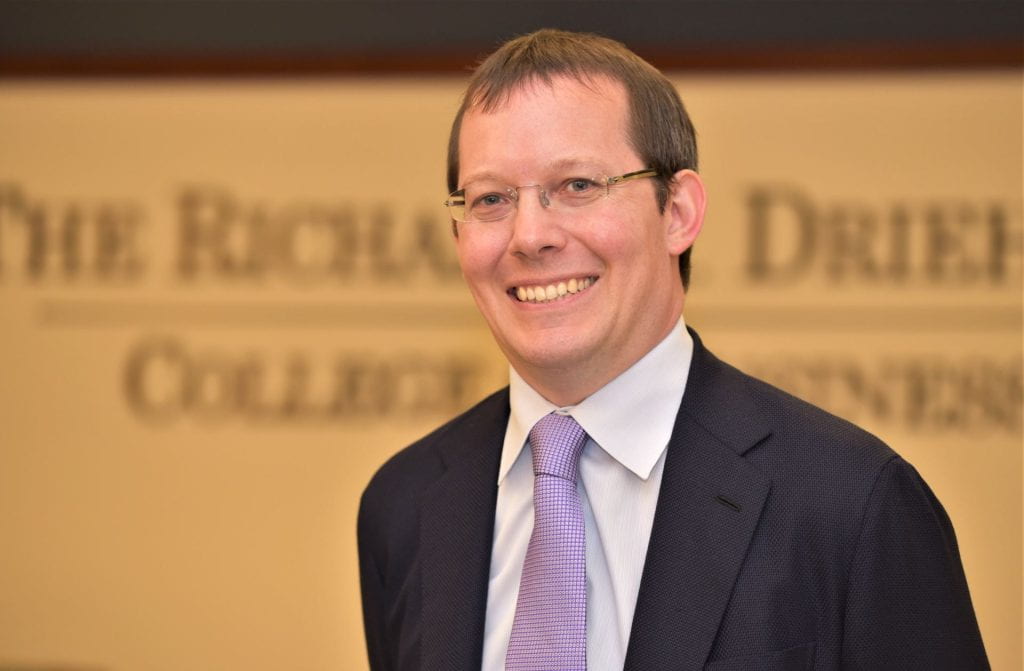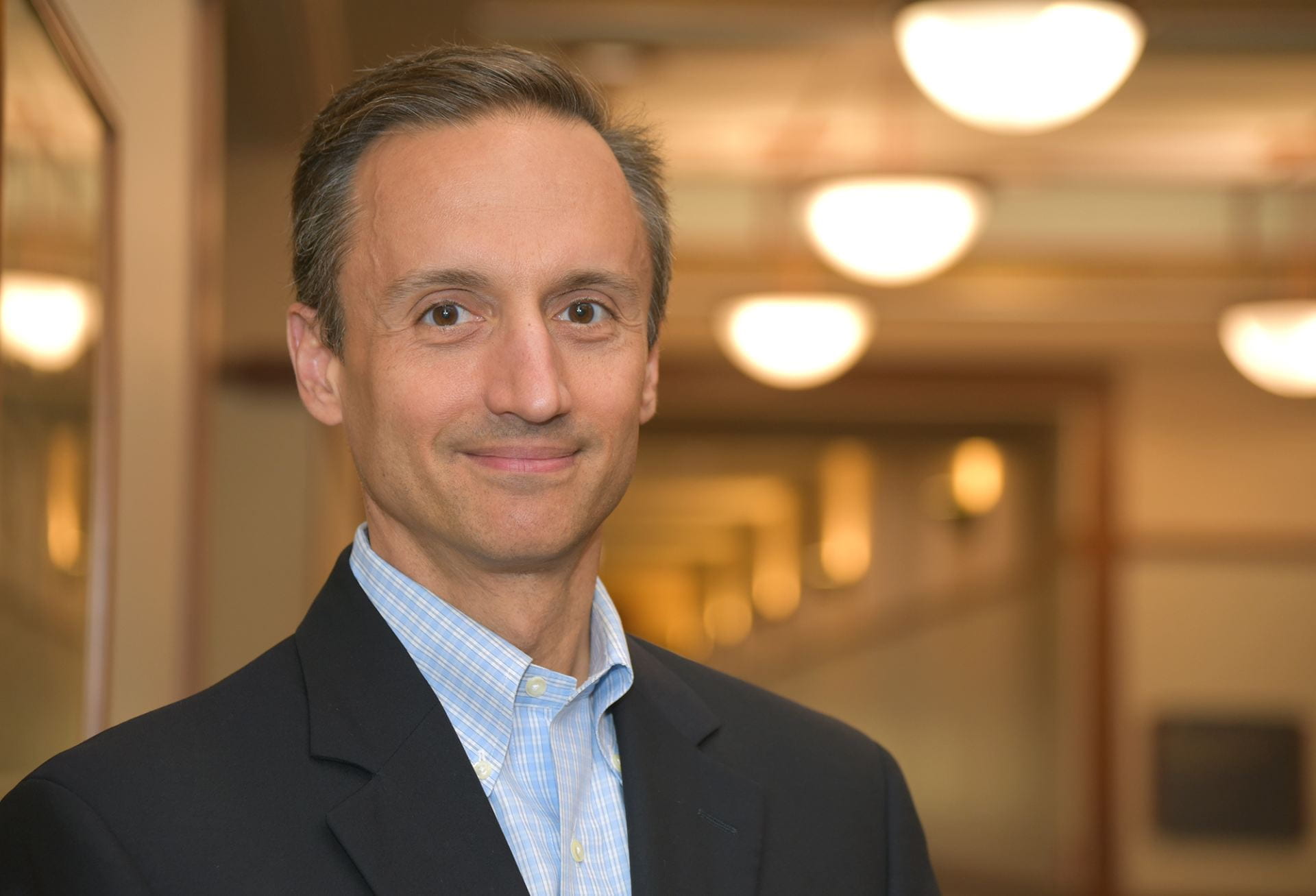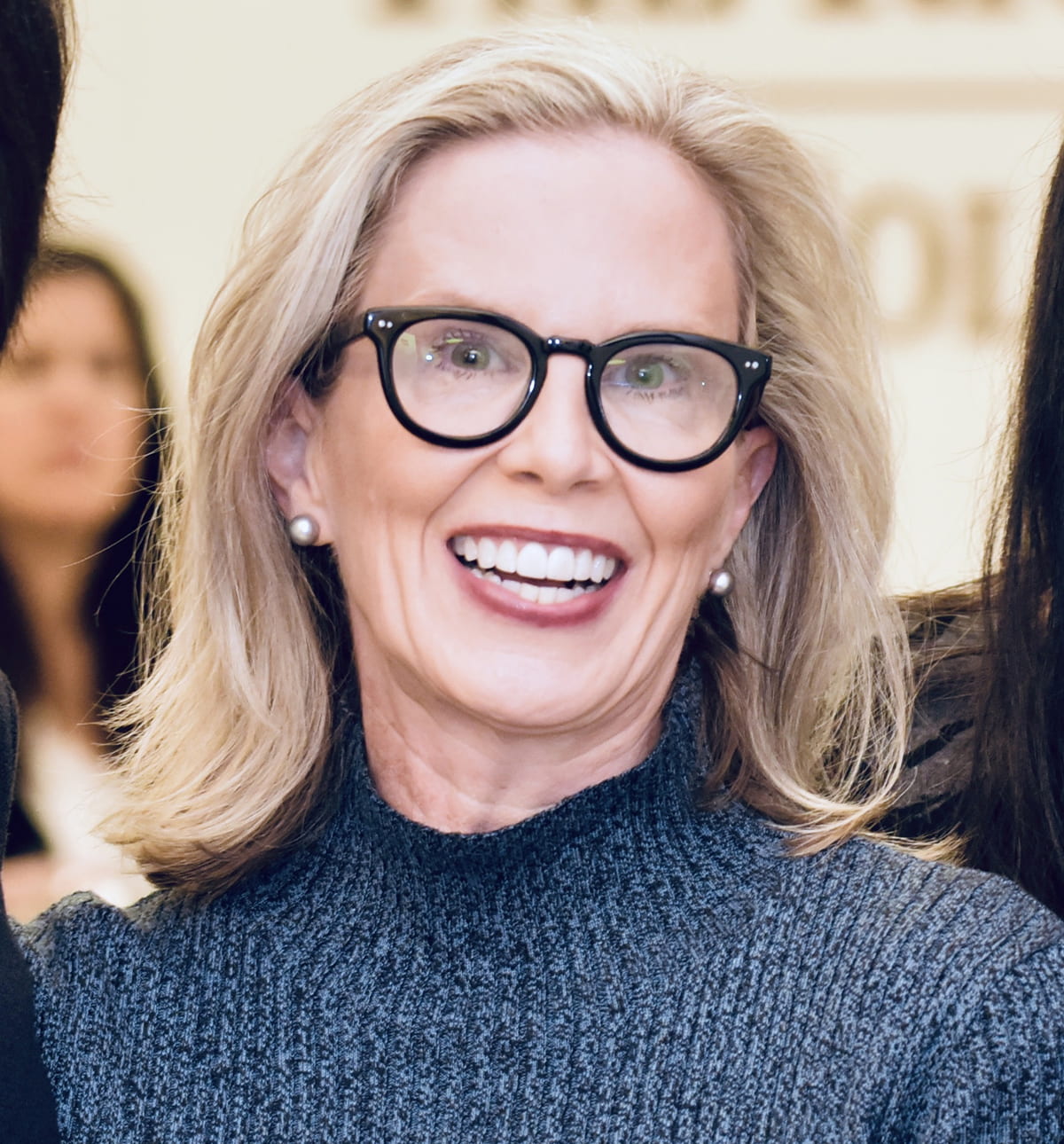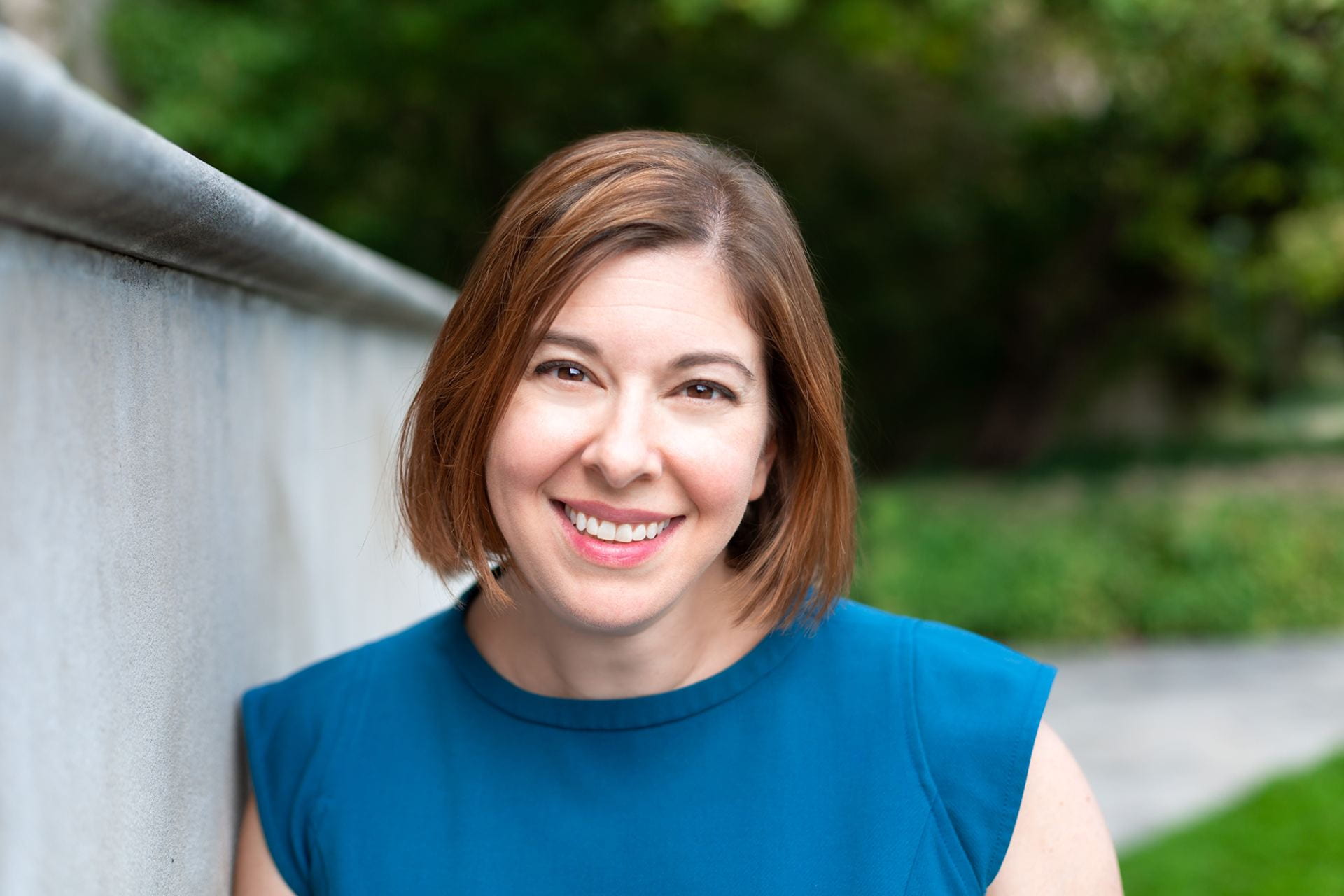
by jlansber | Nov 13, 2022 | College News

DePaul’s Executive Education programs create competitive advantages for individuals looking to advance their careers and help organizations meet their learning and development goals.
To accelerate both individual and organizational talent development, the Driehaus College of Business launched DePaul Executive Education this fall. Program offerings include:
- Open enrollment, 12-week, noncredit certificate programs for all levels of professionals seeking to upskill or reskill. Programs in business analytics and entrepreneurship will begin this winter and programs in health care management and business administration will launch in spring 2023.
- Customized learning and development programs for organization partners. Powered to accelerate talent development, these programs feature consultative design, development, execution and evaluation by DePaul in collaboration with organization partners.
DePaul Executive Education programs are among new initiatives overseen by the Hay Center for Leadership Development, led by Associate Dean Bob Rubin and founded with a generous estate gift from the late DePaul Trustee William E. Hay (MBA ’66, DHL ’06). In 2023 the center plans to launch a yearlong leadership development program for DePaul undergraduates that will provide scholarships, mentoring and rigorous career preparation.

by jlansber | Nov 13, 2022 | Scholarly Pursuits

A recent study co-authored by DePaul business professor Pavel Savor has found that some banks potentially use alternative ways to pursue political influence.
In 2008, Countrywide Financial, once the largest mortgage lender in the United States, was embroiled in a scandal that caused banks to rethink how they pursue political influence. For several years, Countrywide Financial offered loans with low interest rates and other benefits to members of Congress, congressional officials and directors at the U.S. government-sponsored mortgage financer Fannie Mae. After the Countrywide affair was revealed, banks implemented stricter rules around their dealings with politicians, but a recent study co-authored by a DePaul business professor has found that some banks potentially use alternative ways to pursue influence.
The study examined whether banks offered better loan terms to firms that are connected to members of Congress, focusing on close elections, which the authors defined as those in which the victory margin was less than 5%. Their results showed that political connections ultimately led to lower interest rates on new loans to affected firms.

Christopher L. Keeley Chair in Investment Management Pavel Savor
“We were surprised that these banks, at least in our interpretation of the results, tried to ingratiate themselves with politicians by actually giving better loan terms to firms that appear to be supported by these politicians,” says co-author Pavel Savor, a professor of finance and the Christopher L. Keeley Chair in Investment Management at the Driehaus College of Business. “It’s not something I would have guessed when starting this project.”
Savor recently presented the study at several international conferences, where he says he heard from a number of former bank employees who mentioned their employers’ strict rules about dealing with politicians.
“It’s often said that one of the worst things that can happen to a bank is that one of their ex-executives becomes a regulator because that regulator now has to be especially worried about perceived possible conflicts of interest,” he says. “The other thing a bank can do is try to ingratiate itself with politicians by using some less observable means.”
In addition to being treated more favorably by politicians and regulators, firms’ business partners—lenders, customers or suppliers—may also treat banks more favorably as a result of those connections.
“In addition to having direct benefits, these connections may also have indirect benefits, which illustrates the potential importance of political connections and influence on businesses, especially large businesses,” Savor says.
Other findings from the study include:
- Loan terms depend on several factors. The authors found that the improvement in loan terms was much greater when politicians sit on important congressional committees (the effect becomes 244% stronger), when the firm is among the politician’s top campaign contributors (652% stronger impact), and when the firm and politician come from the same state (250% stronger impact).
- Interest rate savings add up. The cost of offering discounts in the form of lower interest rates to connected firms is more than the maximum direct contribution firms can make to a political campaign. The amount of interest rate savings was found to be 10 times higher than what firms can contribute in any given year.
- The 2008 financial crisis may have affected banks’ loan activities. Banks were more likely to offer lower rates and lend more frequently to connected firms if they were facing regulatory issues and during the period surrounding the passage of the Troubled Asset Relief Program (TARP), a program enacted by the U.S. government to help stabilize the economy in the wake of the 2008 recession. The study showed that the impact of political connections was much stronger (625%) during this period, as it also was for banks that received government bailouts.
By Jaclyn Lansbery

by jlansber | Nov 13, 2022 | College News
Four faculty members have been promoted to academic leadership roles within the Driehaus College of Business this academic year. The new leaders are:

Professor Hui Lin
Hui Lin, director of the School of Accountancy & MIS. Recognized for her teaching excellence, Lin has expertise in knowledge management, accounting information systems and internal controls.

Professor of Economics Tony LoSasso
Anthony LoSasso, chair of the Department of Economics. A Double Demon, LoSasso (BUS ’91, LAS ’93) is a nationally known health economics scholar.

Associate Professor of Hospitality Lisa Young
Lisa Young, director of the School of Hospitality Leadership. An award-winning teacher, Young has expertise in hospitality sales, marketing and revenue management, and international wine management.

Professor of Management Alyssa Westring
Alyssa Westring, chair of the Department of Management & Entrepreneurship. Westring teaches and researches issues related to work-life balance and women’s career success.
Three new tenure-track assistant professors and seven other new full-time faculty members also joined the Driehaus College of Business this academic year, bringing a wide-range of academic and professional experience to the college.

by jlansber | Nov 13, 2022 | College News
 Two teams of undergraduate business students have been named co-champions of the inaugural Driehaus Cup, the Driehaus College of Business’s new quarterly business pitch competition, which was held Nov. 16 at the DePaul Lincoln Park Campus Student Center.
Two teams of undergraduate business students have been named co-champions of the inaugural Driehaus Cup, the Driehaus College of Business’s new quarterly business pitch competition, which was held Nov. 16 at the DePaul Lincoln Park Campus Student Center.
The competition is the culminating project of the college’s new course, Business 101: Business Fundamentals and the Entrepreneurial Mindset, which was introduced this fall to educate students about business career paths and the power of entrepreneurial thinking.
The co-champions were:
- Team NTWRK, represented by students Edgar Calderon, Adrian Isufi, Tara Vandergaw and Michael Zukhar, who pitched their idea for an instantaneous networking app that addresses the routine difficulties students experience when exchanging contact information with classmates assigned to group projects.
- Team Smartflask, consisting of students Josh Oldham, Allison Crofoot, Oliver Sikora, Lila Johnson and Liz Hargrave, who pitched their product idea for a bottle that tracks water consumption connected to an app that tracks water intake.
The co-champions were among nine teams that pitched their ideas for business products, services or solutions before panel of judges and an audience of more than 300, who voted on the best pitch. Team NTWRK had been identified as the sole winner at the event, but the subsequent discovery of an error in tabulating votes resulted in NTWRK and Smartflask being recognized as co-champions. Each student on both teams will receive a $500 scholarship, the competition prize.
Seventy-two teams entered the first tier of the Driehaus Cup, which was held earlier this fall in all nine sections of Business 101, one of the signature courses of DePaul’s revised undergraduate core curriculum. The competition is sponsored by the financial services firm Morningstar and the Coleman Entrepreneurship Center at DePaul.
“The Driehaus Cup provides an opportunity for all of our Business 101 students to develop an entrepreneurial mindset,” says Sulin Ba, dean for the college. “This is important for succeeding in any career, whether a student plans to start a business or wants to be an innovator within an established organization.”

by jlansber | Nov 13, 2022 | College News
 The Halperin Emerging Company Fund has been founded to give DePaul the capital to make equity investments in startups founded by DePaul students and alumni as well as community members. Overseen by the Coleman Entrepreneurship Center, the fund will focus on investing in ventures that show potential for growth and job creation. The initiative was founded with a generous gift from the late Errol R. Halperin (BUS ’64, JD ’67) and his wife, Libby Halperin.
The Halperin Emerging Company Fund has been founded to give DePaul the capital to make equity investments in startups founded by DePaul students and alumni as well as community members. Overseen by the Coleman Entrepreneurship Center, the fund will focus on investing in ventures that show potential for growth and job creation. The initiative was founded with a generous gift from the late Errol R. Halperin (BUS ’64, JD ’67) and his wife, Libby Halperin.










